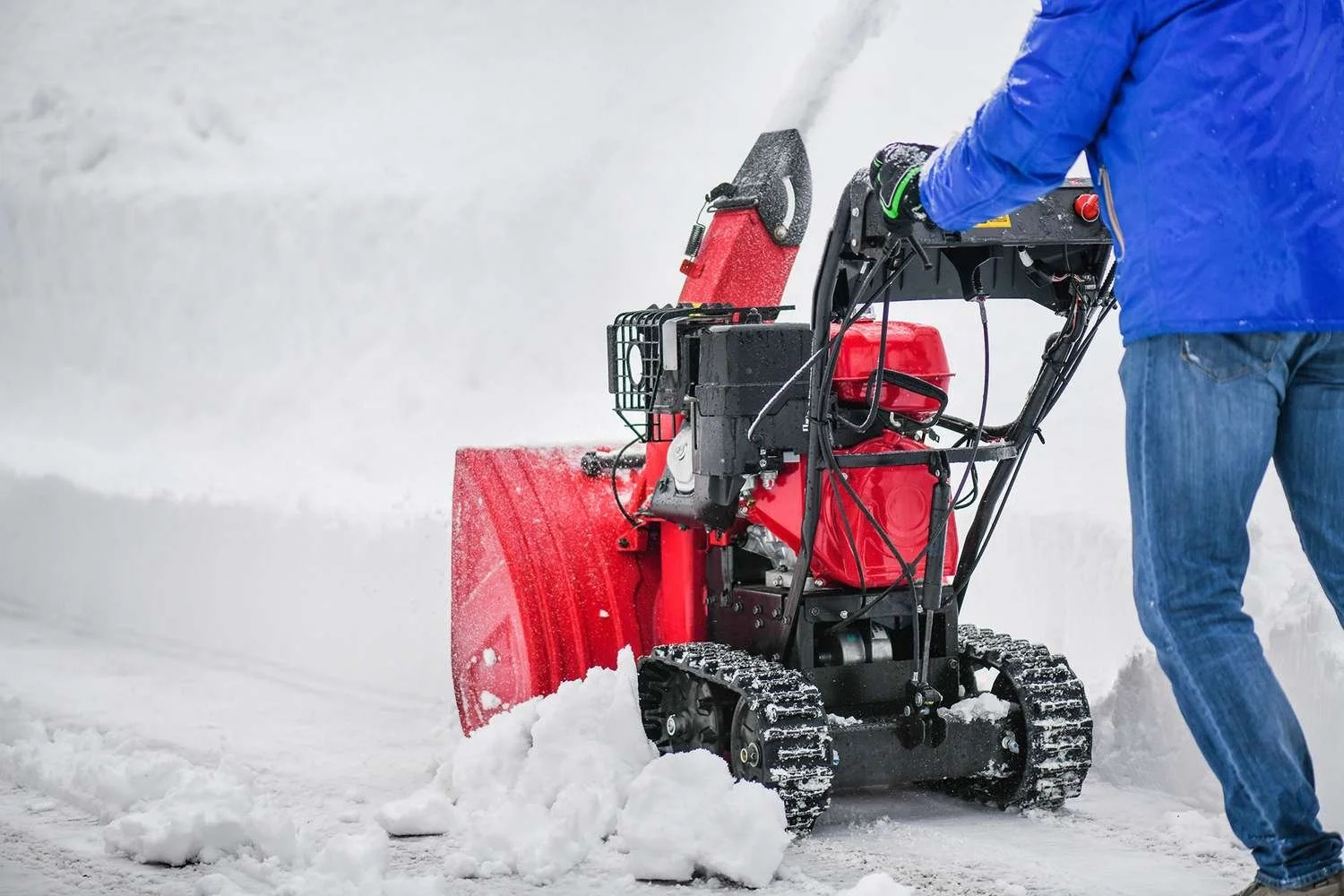The Legal Risks of Not Removing Snow and Ice In Illinois (Homeowners Beware!)
Hey, it’s Gerry from Evo Lawn & Landscape. If you own a home in Lake County or anywhere in Illinois, ignoring snow and ice isn’t just bad for your curb appeal—it can be a legal headache.
Let’s go over exactly what Illinois law says about snow removal and how failing to clear your property could leave you open to fines, lawsuits, and liability claims.
Local Laws Make Snow Removal Mandatory in Most Illinois Towns
Illinois doesn’t have a statewide law requiring homeowners to shovel, but many cities and villages enforce their own ordinances:
Chicago Municipal Code (10-8-180) requires homeowners to clear snow and ice from sidewalks within 12 hours after a snowfall ends. Violations come with fines starting at $50 up to $500 per offense.
Waukegan (City Ordinance 6-2.1) requires sidewalks cleared within 24 hours after snowfall ends.
Other towns like Mount Prospect, Glenview, and Park Ridge also have 24-hour sidewalk clearing rules, with fines for non-compliance.
✅ Fact: You can check your local city code online by searching “{City Name} snow removal ordinance.”
Premises Liability Law In Illinois: You Can Be Sued
Illinois homeowners must maintain safe property conditions under the Illinois Premises Liability Act (740 ILCS 130/). If someone gets injured on your property due to unaddressed snow or ice, you could be sued for:
Medical expenses
Lost wages
Pain and suffering damages
Slip-and-fall lawsuits are common in Illinois during winter, especially when walkways or driveways are unsafe.
✅ Real Example: In Murphy-Hylton v. Lieberman Management Services (2016), the Illinois Supreme Court ruled that property owners may be liable for unnatural accumulations of ice, especially where maintenance neglect contributed to the hazard.
The “Natural Accumulation Rule” Isn’t a Free Pass
Illinois follows the natural accumulation rule, which generally says homeowners aren’t responsible for injuries caused by “naturally accumulated” snow or ice.
BUT—there are big exceptions:
If you shovel poorly and cause unnatural ice formation, you can be sued.
If water from your gutters or melting snow refreezes, you can be sued.
Businesses and landlords owe greater duty of care than private homeowners.
✅ Legal Reference: Chiari v. City of League City, 621 N.E.2d 276 (Ill. App. Ct. 1993) outlines these exceptions where homeowners may be held responsible.
Local Lawsuit Examples (Documented)
Chicago Tribune has reported multiple injury claims resulting from uncleared sidewalks.
An Illinois Appellate Court upheld a $100,000 settlement after a tenant fell on icy stairs because the landlord didn’t apply salt or remove ice after multiple storms (McBride v. Taxman Corp.).
5. What to Do as a Homeowner
Here’s what I recommend if you want to stay out of court and avoid costly fines:
✅ Clear snow/ice within 12-24 hours, depending on your city’s rules
✅ Use ice melt or salt, especially in high foot-traffic areas
✅ Keep your driveway and sidewalks accessible, especially for mail and delivery drivers
✅ Hire a snow removal company if you can’t keep up (We offer snow removal in Lake County, IL)
✅ Take photos after you clear snow (many insurance companies recommend this)
Professional Snow Removal = Legal Protection
At Evo Lawn & Landscape, we offer professional residential snow removal services in Lake County, IL, serving homeowners in Gurnee, Lindenhurst, Grandwood Park and surrounding towns. We help you stay compliant and avoid lawsuits while keeping your property safe.
📞 Want Reliable Snow Removal?
Call Evo Lawn & Landscape at (224) 777-0061 or visit https://www.evolawnlandscape.com.
✔️ No more worrying about city fines.
✔️ No more worrying about slip-and-fall lawsuits.
✔️ Just clean, safe driveways and walkways all winter.
Stay warm. Stay safe. Let us handle the snow.
— Gerry, Evo Lawn & Landscape
Frequently Asked Questions About Snow Removal in Lake County, IL
1. Do homeowners in Illinois have to shovel snow?
Yes! While Illinois doesn’t have a statewide snow shoveling law, most cities — especially here in Lake County — have local ordinances that require homeowners to clear sidewalks within 12 to 24 hours after snowfall. Ignoring it can result in fines from your local municipality.
2. Can I get sued if someone slips on my icy driveway or sidewalk?
Absolutely. Under the Illinois Premises Liability Act, homeowners can be held legally responsible if someone is injured on their property due to unsafe snow and ice conditions — especially if you didn’t take “reasonable care” like shoveling or salting.
3. What is the natural accumulation rule in Illinois?
Good question! The natural accumulation rule protects homeowners from liability for natural snow and ice—but there are exceptions. If you shovel poorly, cause unnatural ice buildup, or have water drainage that causes freezing, you can still be sued in Lake County courts.
4. How much are the fines for not removing snow in Lake County, IL?
Fines vary by city. Waukegan and nearby towns like Lindenhurst and Gurnee can fine homeowners $50 to $500 per violation if sidewalks aren’t cleared within 24 hours. Cities like Chicago enforce even stricter timelines of 12 hours.
5. How can I avoid legal risks during winter?
Easy — I recommend:
Shoveling after every snowfall within the required timeframe.
Using salt or ice melt to prevent ice buildup.
Hiring a professional like us at Evo Lawn & Landscape for reliable, scheduled snow removal services across Lake County, IL.
6. Do you offer residential snow removal near me?
If you’re in Lindenhurst, Gurnee, Grandwood Park and surrounding Lake County cities — yes, we do! We offer affordable, reliable snow removal services to keep your property safe and lawsuit-free.


